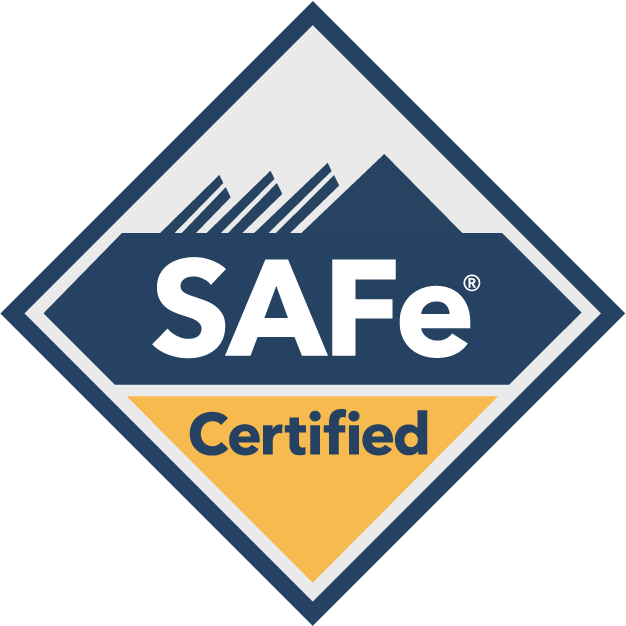Subscribe to the blog
Project management is no easy feat. In modern workplaces and modern teams, it’s impossible to work cohesively without someone overseeing the operations and processes. It is no surprise that project management has been the top skill in demand.
There are scores of possible approaches one can adopt for successful project management. One of these is the Scrum methodology of project management. The Scrum framework helps develop, deliver and sustain processes in a complex environment by breaking down tasks into several shorter ones.
In practice, it feels like you are running in sprints rather than for a marathon. It makes the bigger goal more achievable by breaking it down into smaller milestones. The Scrum framework involves continuous learning and adjustments. In other words, it leaves room for adaptation and changes to be made based on new information learned during the process. It sets the team up for success by building in iterations, re-prioritization, and revisions in the workflows.
When implementing Scrum, you need a dedicated team comprising the Scrum Master, the Product Owner, and the Development team members, who collectively make delivery of these shorter tasks possible. However, these roles are not formal job titles in an organization. So, someone may be managing the team, but not the implementation of Scrum.
Sometimes job titles can and will overlap with the Scrum team roles, but that’s neither a precondition nor a deliberate move. The existing employees can perform the Scrum roles based on their fit and skills. For instance, someone with managerial skills and a supervisory knack will be excellent as the Scrum Master. This person may or may not be the project manager; these two facts have no bearing on each other.
In this blog, we look at these two roles: the Scrum Master and the Project Manager. We also answer a question that’s frequently brought up: Are the Scrum Master and Project Manager the same functions?
Who is a Scrum Master?
As is clear from the name, a Scrum Master is in charge of the Scrum operation. They are responsible for keeping everything together: they are often referred to as the facilitators of Scrum or the “servant leaders.” Essentially, they lead the team so they can serve every other member working towards the same goal in the best possible manner. Simultaneously, they make sure we are on track — with resources, milestones, and meetings — to reach our mini-goals.
Their functions involve
- Facilitation of meetings, including the daily Scrum/stand-ups, iterations/sprint planning, retrospectives, and 1-on-1s with the Scrum team members
- Leading by example to set up quality communication and coordination within the Scrum team
- Supporting the various team members to help them effectively perform their roles in the sprint
Who is a Project Manager?
Project managers are professionals — known as such through their job title in an organization — who take charge of all aspects of projects, from the budgeting to scheduling, allocation of responsibilities to liaising, and risk management.
Their functions involve
- Planning the project: tasks, timelines, and personnel
- Day-to-day supervision of project schedules, goals, communication, and budgets
- Defining project scope and ensuring the team efforts are aligned
Similarities between Scrum Master and Project Manager
Due to the supervisory nature and leadership component involved in the two roles, Scrum Masters are often confused with the Project Manager and vice versa.
- Several soft and hard skills are transferable across the two roles. Good leadership skills, problem-solving, communication, and coordination skills come in handy for both. Technical skills like project planning and risk management, among others, are also characteristic of a good candidate for both roles.
- Both roles have a strong aspect of ensuring the achievement of goals through the management and coordination of various working parts.
For what it’s worth, the similarities between a Scrum Master and a Project Manager end here. A Scrum Master’s role is narrowly built for the Scrum team. Let’s look at the differences between the two roles in the next section.
Differences between Scrum Master and Project Manager
Here are the primary distinctions between Scrum masters and project managers:
- As we mentioned earlier, the role of Scrum masters is exclusive to Scrum projects and Scrum teams. On the other hand, project managers are organization-wide resources who can work across a spectrum of projects and goals.
- Project managers can also choose any methodology to get work done. Scrum is just one option among many. They can choose Lean methodology, Kanban, Lean, and many others.
- Scrum Masters focus on the goal and its achievement as a priority. This is why they chop down the big goals into smaller ones. They ensure everyone is always on track to achieve these goals. Project managers are majorly responsible for the logistical side of work: they’ll spend a long time on budget management, risk management, and liaison with external stakeholders, like the clients or customers. Scrum Masters only liaise with the Scrum team and project team within the organization.
- The Scrum Master manages a smaller team size, with only the product owner and the development team members. Project Managers, on the other hand, deal with a large team across the organization, going beyond a single project. They may even be handling multiple projects simultaneously, making their jurisdiction much wider than a Scrum Master.
- Quality assurance is a big part of the Scrum master’s job. It’s why they adapt so much, divide tasks a lot, and make allocations and re-allocations. They want the best quality work and are not shy to ruffle up the team to ensure the best results. Project Managers are concerned broadly with the successful execution of the task, so they are less minutely dictating these details.
- It can be said that Scrum Masters are specialists in this skill and methodology. Project managers are generalists because they stay open to all methodologies for different projects as the need and suitability arise.
Is a Scrum master a project manager?
This is a grey area. So the answer is a simultaneous yes and no. Scrum Masters are rightfully referred to as project managers to a certain extent. They are, after all, practitioners of one type of project management methodology. They have all the skills needed to organize, plan, and execute a project and a team. So there is an evident overlap in the two roles.
However, since Scrum Masters are only looking at a specific methodology, they’re not all-rounders vis-à-vis project management. Thus, their role is a subset within the role of a project manager.
Often, the Scrum Master is not the same person with the formal title of “Project Manager” in an organization. They may not hold any formal leadership position at all. Someone with Scrum expertise or certification or experience can take on this role, which lasts only as long as the project does. Scrum masters can be anyone on the team: product managers, software developers, and design leaders.
Becoming a Scrum Master or project manager
Are you wondering if the role of a Scrum Master or Project Manager is for you? No better way than by doing it. If you like working and coordinating with people, if change management and problem-solving excite you, these roles can be a good fit. Here’s how you can break into these roles.
- Certifications
Getting certified involves a rigorous process of learning as well as implementation. You learn a lot about the actual role when working towards a certification. Moreover, you’ll notice that employers instinctively prefer someone with certification, especially if you don’t have much relevant experience. These certifications also promise to upskill you into becoming a scrum master or a project manager as per industry standards.
Certifications for a Scrum master include either a Certified ScrumMaster (CSM) or a Professional Scrum Master (PSM I). Certifications for a Project Manager can be Project Management Professional (PMP) or Certified Associate in Project Management (CAPM).
- Course
Similar to certifications, there are several courses available online or offline to help you build the foundational knowledge base. If you have a foundational degree in IT or business administration or a related field, it can also be a stepping stone towards a successful Scrum career.
- Experience at work
Nothing substitutes actual work experience. Share your desire to learn project management skills with your manager, shadow them at work, and start by taking the initiative on smaller projects.
Wrapping up…
In the end, a lot of project management — Scrum or not — is about your soft skills: are you able to communicate proactively and effectively? Are you solution-oriented?
At ATS, we can guide you in the process of Scrum adoption for your team. Let’s connect and discuss how we can work together to elevate your team’s project management outcomes.




